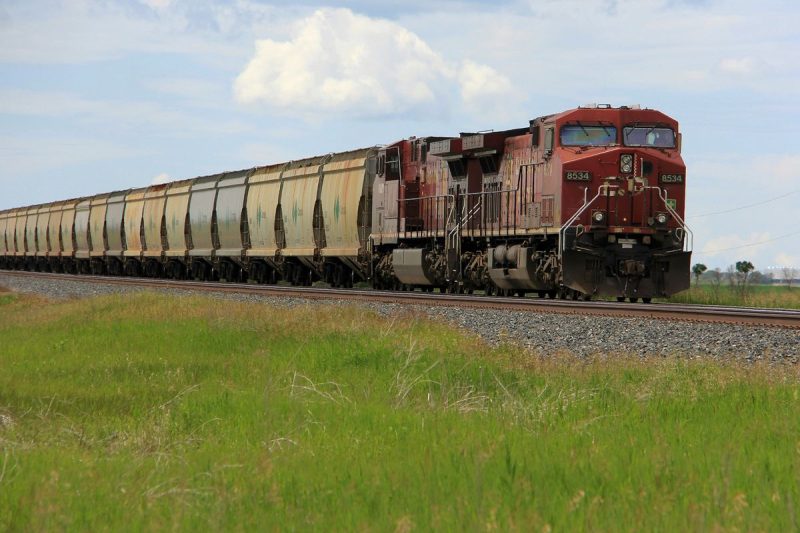Potash, Oil, and Metal Shipments Halted as Canadian Rail Workers Locked Out
The recent lockout of Canadian Pacific Railway (CPR) workers has caused significant disruptions in the transportation of critical resources such as potash, oil, and metals across the country. With tensions between the workers union and CPR management escalating, the impact of the ongoing labor dispute is being felt not only by the companies directly involved but also by various industries and communities that rely on the timely delivery of these goods.
Potash, a key ingredient in fertilizers, is a vital component of Canada’s agricultural industry. The halt in potash shipments due to the rail workers’ lockout is causing concerns among farmers who depend on a steady supply of this essential nutrient for their crops. The disruption in potash deliveries could potentially lead to crop yield reductions and impact food production in the long run.
The suspension of oil shipments is another critical issue arising from the rail workers’ lockout. Canada is a major producer of oil, and any disruption in its transportation can have far-reaching consequences for the energy sector. The halted oil shipments not only affect domestic consumption but also impact Canada’s ability to meet its international export commitments, leading to potential economic losses and a ripple effect on global energy markets.
Alongside potash and oil, the suspension of metal shipments is also causing disruptions in various industries that rely on steel, aluminum, and other metals for manufacturing processes. The automotive, construction, and aerospace sectors are just a few examples of industries that rely heavily on a steady supply of metals to sustain their operations. The inability to receive timely metal shipments could lead to production delays, increased costs, and supply chain interruptions, ultimately affecting the overall economy.
The lockout of CPR workers highlights the vulnerability of Canada’s transportation infrastructure and the need for effective labor-management negotiations to prevent such disruptions in the future. While both the union and CPR management have valid concerns, it is crucial for them to find a common ground and resolve their differences to ensure the smooth functioning of the rail network and the uninterrupted delivery of essential goods across the country.
In conclusion, the ongoing lockout of Canadian rail workers and the subsequent halt in potash, oil, and metal shipments underscore the interconnectedness of various industries and the importance of a reliable transportation system for Canada’s economy. As stakeholders continue to navigate this challenging situation, finding a timely resolution to the labor dispute is essential to mitigate the impact on businesses, communities, and the overall supply chain.




























